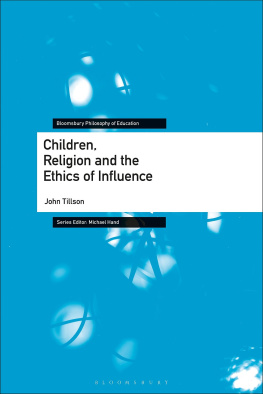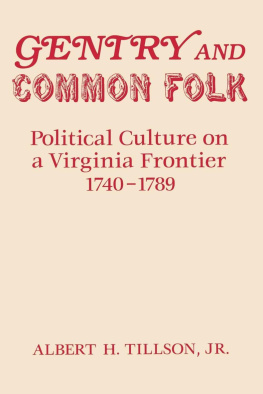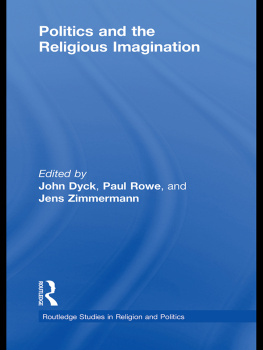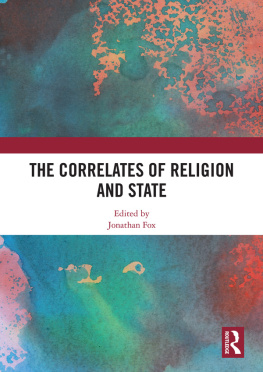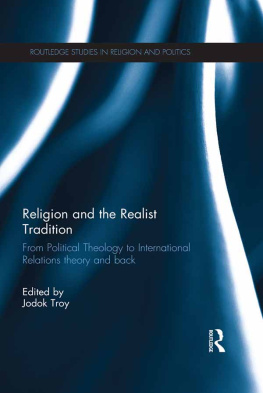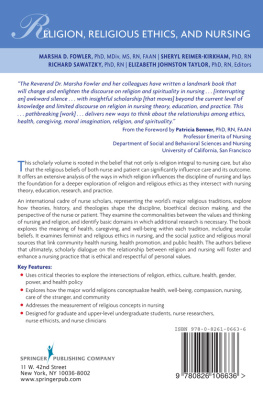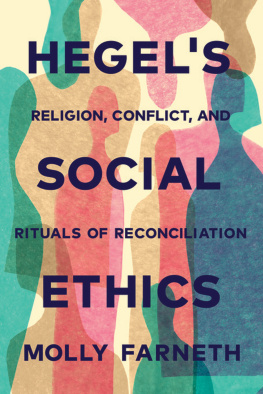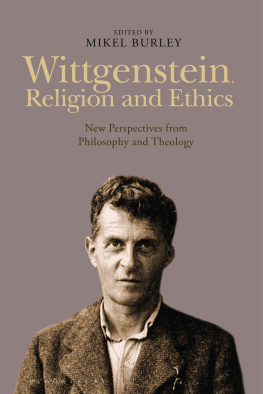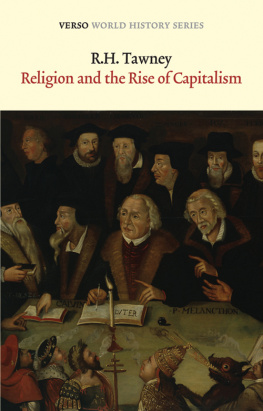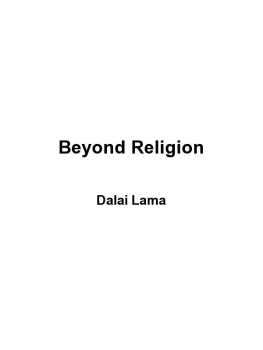Children, Religion and the Ethics of Influence
Bloomsbury Philosophy of Education
Series editor: Michael Hand
Bloomsbury Philosophy of Education is an international research series dedicated to the examination of conceptual and normative questions raised by the practice of education.
Also available in the series
A Critique of Pure Teaching Methods and the Case of Synthetic Phonics , Andrew Davis
Cherishing and the Good Life of Learning , Ruth Cigman
Philosophical Reflections on Neuroscience and Education , William Kitchen
Also available from Bloomsbury
Learning to Flourish , by Daniel R. DeNicola
Teaching Virtue , by Marius Felderhof and Penny Thompson
For Michael and Christine Tillson
Children, Religion and the Ethics of Influence
John Tillson

Contents
My deepest debt of gratitude is to my parents, Michael and Christine Tillson, who have sometimes encouraged, sometimes tolerated, but always supported me through my spells at university and the gaps between them. My next debt (also of gratitude and fortunately not of money) is to the Irish Centre for Religious Education for the award of a doctoral scholarship which enabled me to conduct much of the research on which this book is based. I am grateful also to my PhD supervisors, Gareth Byrne and Ian Leask, who helped me develop a thesis from a shadow of an idea. Patricia Kieran and Jones Irwin are to thank for a thorough and thoroughly enjoyable viva voce.
While working on the thesis, I benefitted from discussing its ideas with Dave Aldridge, Richard Bailey, Julian Bennett, David Boylan, Kevin Currie-Knight, Scott A. Davison, Mark E. Jonas, Colm Kenny, Kevin McDonough, Andy McGrady, Bernadette Sweetman Morris, Joseph Rivera, Jonny Scaramanga, Claudia Schumann, Patricia Smith, Rebecca Taylor, Ruth Wareham and Kevin Williams. I have learnt much since defending my thesis, and my list of educators has extended further. In particular, at Warwick I learnt much from members of Warwicks Centre for Ethics Law and Public Affairs and from Matthew Clayton in particular. Since moving to Liverpool Hope I have benefitted from working with David Lundie and John Shortt as well as from being nested within the Centre for Education and Policy Analysis.
I should like to single out two people for special thanks. First, Michael Hand, who has proved a critical and encouraging mentor since supervising my MA thesis in 2009. Secondly, Reviewer 2, whose stern rejections and merciful requirements for revision have been both legion and (almost) always justified. I dont know who you are, but I think youre great. Such papers as I have produced are, without exception, much better for your discerning observations and demanding standards. Finally, I would like to thank the Philosophy of Education Society of Great Britain for the inestimable benefit of its monetary and spiritual support since I first joined its ranks in 2009. Long may it and its global cousins continue to grow and nurture the field! Without the help of these many people and institutions, this book would not have such qualities as it has. It is customary to say that its remaining faults are my own fault, and so they are.
Chapter 6 is derived in substantial part from articles published in the Journal of Philosophy of Education (copyright Wiley) and in Ethics and Education (copyright Taylor & Francis): Towards a Theory of Propositional Curriculum Content. Journal of Philosophy of Education , 48, No. 1 (2014): 137148, and Is all Formative Influence Immoral? Ethics and Education , 13, No. 2. (2018): 208220. Part of Chapter 10 is derived from my chapter, Rival Conceptions of Religious Education in the International Handbook of Philosophy of Education , ed. Paul Smeyers (Dordrecht: Springer, 2018): 10591082.
John Tillson, Liverpool, 2018
Bloomsbury Philosophy of Education is an international research series dedicated to the examination of conceptual and normative questions raised by the practice of education.
Philosophy of education is a branch of philosophy rooted in and attentive to the practical business of educating people. Those working in the field are often based in departments of education rather than departments of philosophy; many have experience of teaching in primary or secondary schools; and all seek to contribute in some way to the improvement of educational interactions, institutions or ideals. Like philosophers of other stripes, philosophers of education are prone to speculative flight, and the altitudes they reach are occasionally dizzying; but their inquiries begin and end on the ground of educational practice, with matters of immediate concern to teachers, parents, administrators and policy-makers.
Two kinds of question are central to the discipline. Conceptual questions have to do with the language we use to formulate educational aims and describe educational processes. At least some of the problems we encounter in our efforts to educate arise from conceptual confusion or corruption from what Wittgenstein called the bewitchment of our intelligence by means of language. Disciplined attention is needed to such specifically educational concepts as learning and teaching, schooling and socialising, training and indoctrinating, but also to the wider conceptual terrain in which educational discourse sits: what is it to be a person, or to have a mind, or to know or think or flourish, or to be rational, intelligent, autonomous or virtuous? Normative questions have to do with the justification of educational norms, aims and policies. What educators do is guided and constrained by principles, goals, imperatives and protocols that may or may not be ethically defensible or appropriate to the task in hand. Philosophers of education interrogate the normative infrastructure of educational practice, with a view to exposing its deficiencies and infirmities and drawing up blueprints for its repair or reconstruction. Frequently, of course, the two kinds of question overlap: inappropriate aims sometimes rest on conceptual muddles, and our understanding of educational concepts is liable to distortion by ill-founded pedagogical norms.
In terms of scholarly output, philosophy of education is in rude health. The field supports half a dozen major international journals, numerous learned societies and a busy annual calendar of national and international conferences. At present, however, too little of this scholarly output finds a wider audience, and too few of the important ideas introduced in journal articles are expanded into fully developed theories. The aim of this book series is to identify the best new work in the field and encourage its authors to develop, defend and work out the implications of their ideas, in a way that is accessible to a broad readership.
It is hoped that volumes in the series will be of interest not only to scholars and students of philosophy of education and neighbouring branches of philosophy, but also to the wider community of educational researchers, practitioners and policy-makers. All volumes are written for an international audience: while some authors begin with the way an educational problem has been framed in a particular national context, it is the problem itself, not the local framing of it, on which the ensuing arguments bear.
Michael Hand
Introduction
The primary question of this work is this: How may we ethically influence children with respect to religions? In particular, by what means, and towards what ends (if any) may we do this? More perspicuously still, what ethical claims (if any) do children have over us when it comes to our influencing of them with respect to religion, and what ethical claims (if any) have we over them in the same regard? I ask about influence , instead of upbringing, education or schooling, since similar considerations are relevant to deciding both what kinds of upbringing and education children are entitled to, as well as to deciding whether schooling embodies an appropriate expedient in their service. That is to say, in my view, the ethics of education and upbringing are best discussed in tandem, as parts of the ethics of influence.

